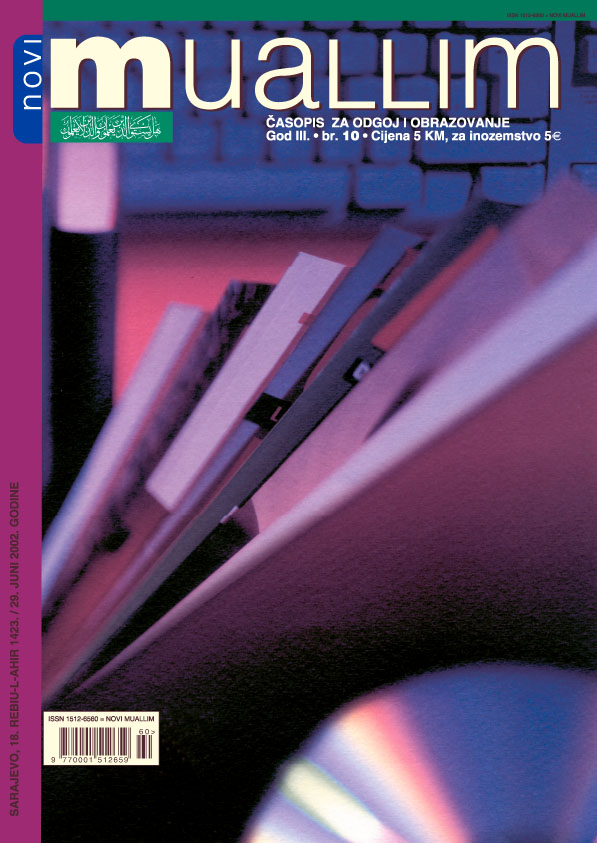THE RELIGIOUS POETRY OF THE BOSNIAC POETS "OUTSIDE OF THE ORIGINAL HOMELAND" (1)
DOI:
https://doi.org/10.26340/muallim.v3i10.1332Abstract
The literature created by Bosniac poets from Sanjak is a typical kind of literature created "outside of the original homeland". Sanjak, as a border area, is a typical enclave type area that produces a potential of the language idioms' syncretism: Serbian, Montenegrian and Bosnian. This language syncretism per se is enriched with the variable "excess sense". Hence, it is reserving the right to accurateness and importance of speech (colloquial and artistic). The aspiration of that merged kind of expression produced and it is still visibly producing the recognizable literary works. On the other hand, the language syncretism has, as its basis, the ethnological and anthropological syncretism. Here, the pagan elements intertwine with Islamic, Slavic with oriental, pre-Christian with Christian elements etc. Thus, it is not strange that not one poet represents a continuation of the Sufi tradition or of the poetry written for the special occasions. (qasida.h, t,arih, etc.). The poetry is characterized by abundance of folk tradition, which is based on, either religious (Islamic) expression or the one of the ordinaiy man. The poets who represent this kind of poetry are: Camil Sijaric, Ismet Rebronja, Husein Basic, Husko Dzigal and others. Another integral part of Bosniac poetry created "outside of the original homeland" is the poetry created in diaspora (unless we place Sanjak in this category as well). No significant poets emerged in Bosnian diaspora (so evident today), particularly those who could have had a stronger impact on Bosniac poetry, using their international experience in terms of culture and poetry. Since this kind of poets considered Croatia as their homeland (most of the Bosniac poets in diaspora are considered to be Croatophile), the number of those who could have had this impact was indeed insignificant. Only few of those poets wrote touching verses of their "home, homeland, memories and daydreaming of homeland". Nevertheless, this text analyzes three poets from diaspora: Asaf Durakovic, Alan Horic (Alija Horic) and Husnija Hrustanovic.
Downloads
Published
How to Cite
Issue
Section
License
Naknada:
a. Časopis ne naplaćuje naknadu za obradu članaka (APC) i naknadu za podnošenje članaka.
Autori koji objavljuju u ovom časopisu pristaju na sljedeće uvijete:
- Autori zadržavaju autorska prava i pružaju časopisu pravo prvog objavljivanja, pri čemu će rad jednu godinu po objavljivanju biti podložan licenci Creative Commons imenovanje koja omogućuje drugima da dijele rad uz uvijet navođenja autorstva i izvornog objavljivanja u ovom časopisu.
- Autori mogu izraditi zasebne, ugovorne aranžmane za ne-ekskluzivnu distribuciju rada objavljenog u časopisu (npr. postavljanje u institucionalni repozitorij ili objavljivanje u knjizi), uz navođenje da je rad izvorno objavljen u ovom časopisu.


